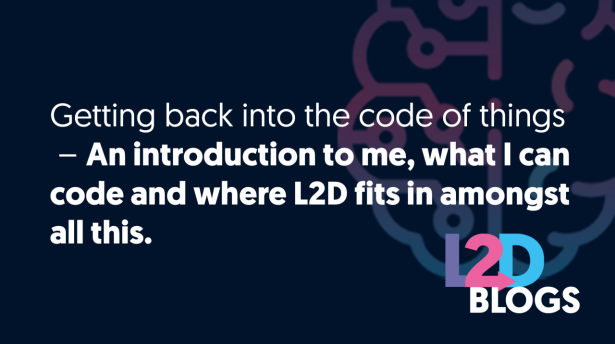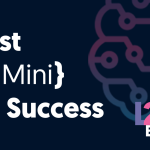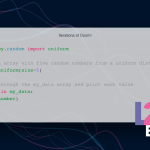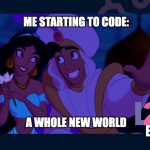My name is William: here writing not only my first blog for the L2D programme, but my first ever public blog! With only a brief bit of experience writing a few personal journal entries during my travels this summer, I’m curious to see how this blog develops and shapes over my time with my progression through the L2D course.
Best to start with a bit of personal background, though… I’m 22 and I’ve joined the LIDo programme straight from my undergraduate degree, which I graduated from this summer from the University of Bristol. I did an integrated masters in Engineering Mathematics, which is an incredibly unique and challenging course that only exists at Bristol. Essentially, it’s all about applying mathematical modelling techniques to real-world problems. It sits at the interface between practical engineering, data science and core mathematics.
So. How and why LIDo? Clearly, none of my background screams ‘Biology!’. And yes, I’m definitely one of a small handful within my cohort who’s made the big jump from the more physics-y/computer science side of academia. Well, I’ve always had an affinity for biologically inclined subjects since studying it at A-Level. This background passion actually informed quite a few of my optional unit choices during my time at Bristol. Perhaps most importantly, a unit called ‘Computational Neuroscience’, which is where I’d say my current passions came to life.
Nowhere else had I seen such a natural and fascinating fusion of data science and fundamental biological science. With this unit being taught by the Computer Science department, I also got a real sense for how I could apply my analytical and computational skills to biological problems and data within the brain. This started a PhD-flavoured breadcrumb trail which eventually led my discovery of, and subsequent successful enrolment into the LIDo programme.
To bring the attention back to the L2D course specifically, you wouldn’t be crazy if you were wondering what on Earth I could hope to gain from participating. After all, I’ve spent well over four years now developing my computer programming skills across multiple languages, writing scripts which include as little as adding up a few numbers all the way up to advanced AI and Machine Learning models.
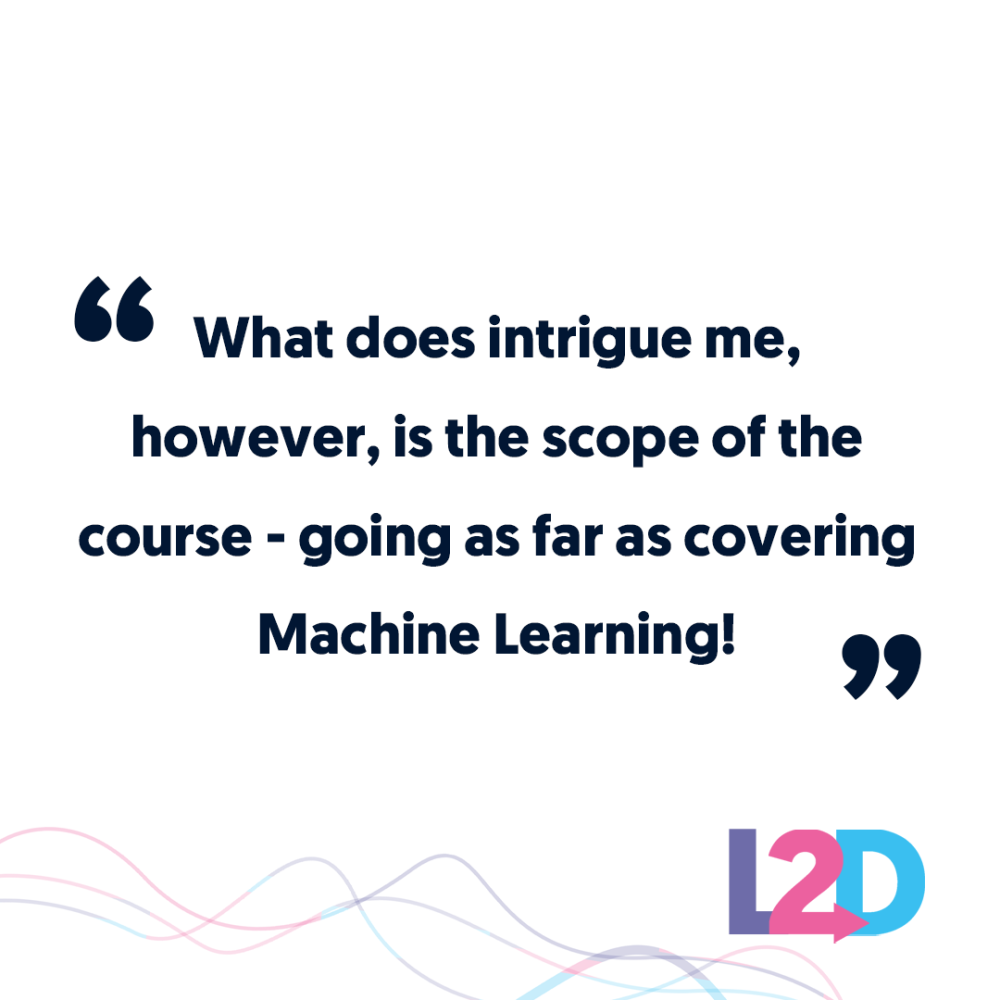
With all the above in mind, I think it’s entirely fair to say that I don’t expect to get much out of L2D’s initial introductory lectures. Covering the basic of printing and conditional statements simply isn’t something that excites or challenges me. What does intrigue me, however, is the scope of the course – going as far as covering Machine Learning! Yes, I’ve got experience with this too, but never have I felt truly confident at programming ML/AI models from scratch. This, and their biological sciences approach, is where I think the L2D course has the potential to shine for me.
But for now, let’s not jump ahead. Given that I’ll be working concurrently on my own challenging PhD rotation projects, reaffirming and experimenting with the basics before jumping back into the more advanced techniques isn’t as illogical a step as it may first appear. Plus, a more experienced perspective might allow for a greater level of creativity – finding alternate solutions that are a little more technical and challenging.
Written by William Antcliff, edited by the Learn To Discover Team.
